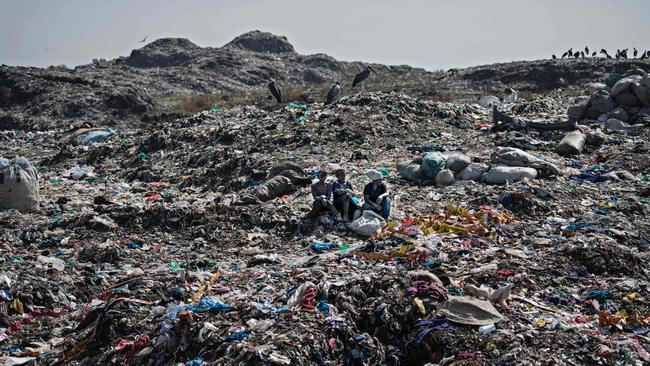Action to tackle plastic in the seas and soil as 175 states agree pact
The pact will also address microplastic particles that have been found everywhere from the deepest ocean to near Everest’s peak.

Millions of tonnes of plastic waste could be prevented from contaminating the ocean, soil and air each year after 175 countries agreed to develop the first binding treaty on plastic pollution.
Its terms are due to be agreed by the end of 2024 and will cover the lifecycle of plastic from production to disposal.
The treaty will address all forms of plastic pollution, including microplastic particles, which have been found everywhere from the deepest ocean to near Everest’s peak as well as in Arctic snow and Antarctic ice, shellfish, table salt and drinking water.
Under the resolution agreed unanimously at the UN environment assembly in Nairobi on Wednesday night, an intergovernmental negotiating committee will be convened “to develop an international, legally binding instrument on plastic pollution, including in the marine environment”. The committee will start work this year, with “the ambition of completing its work by the end of 2024”.
The resolution gives it a broad mandate to develop both binding and voluntary measures, set global targets and produce mechanisms for tracking progress and ensuring accountability.
The measures could include limits on the production of virgin plastic, the phasing out of single-use products, and requirements to recycle.
The resolution also calls for financial assistance to help poorer countries to take action.
Plastic production globally increased from two million tonnes in 1950 to 348 million in 2017 and is on course to exceed 600 million by 2040. About 11 million tonnes of plastic waste ends up in the ocean annually and the UN said that could triple by 2040. The total plastic waste produced globally has more than doubled since 2000 to 353 million tonnes in 2019, according to a report last month by the Organisation for Economic Co-operation and Development. Only 9 per cent is recycled, 19 per cent is incinerated and 50 per cent sent to landfill.
The remaining 22 per cent is dumped in unregulated sites, burnt in open pits or leaks into the environment, the report says.
Ellen MacArthur, the record-breaking yachtswoman who runs an environmental foundation, said the resolution was “a key moment in the effort to eliminate plastic waste and pollution on a global scale”.
“Critically, this includes measures considering the entire lifecycle of plastics, from its production, to product design, to waste management, enabling opportunities to design out waste before it is created,” Dame Ellen said.
The UK was among more than 70 countries that helped to develop the resolution by supporting an initial proposal from Rwanda and Peru that addresses the full lifecycle of plastics.
Inger Andersen, executive director of the UN Environment Program, said: “This is the most significant environmental multilateral deal since the Paris accord. It is an insurance policy for this generation and future ones, so they may live with plastic and not be doomed by it.”
Zac Goldsmith, the British Environment Minister representing the UK at the conference, wrote on Twitter: “This is a historic moment, and I’m hugely proud the UK co-sponsored the proposal.”
Marco Lambertini, director-general of WWF International, the conservation group, said: “By agreeing to develop a legally binding global treaty on plastic pollution, our world leaders are paving the way for a cleaner and safer future for people and the planet. But our work is far from over – world leaders must now show even more resolve in developing and implementing a treaty which addresses our current plastic pollution crisis and enables an effective transition to a circular economy for plastic.”
THE TIMES



To join the conversation, please log in. Don't have an account? Register
Join the conversation, you are commenting as Logout